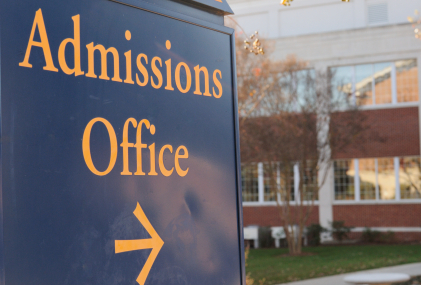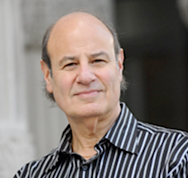by Steve Lipman –

In my first blog: “How to Choose a Music School,” I introduced the concept of overall fit as being the single most important aspect of selecting a college or university to attend. That is, no one component should be the sole reason for attending an institution of higher learning. Attending college is a series of interactions and experiences spread over four or five years. By conservative estimates you will attend somewhere in the vicinity of 1450 hours of classes over eight semesters. When you account for outside activities –– social as well as educational –– you might spend perhaps 20,000 hours of your life in college. That’s a lot of time spent. It better feel right. It should be rewarding and comfortable. It should bring you closer to who you are, who you want to be –– as a musician, as a person, as a citizen of the world.
Each of the components of “fit” described in the first installment, as well as a few others, could take up a whole blog by itself. So lets just tackle a few in brief –– some obvious, some less obvious –– just so you get the idea of how to approach this undertaking.
Size
You no doubt have come across the phrase, “one size fits all”. Well, when it comes to attending college this phrase couldn’t be farther from the truth. The most well-known and respected music schools in the country range in students from just a few hundred to many thousands. And, if you choose to attend a school of music that is part of a large university, the number of students at that university may easily be in the tens of thousands. I bring this up because the “feel” of attending a conservatory with 400 students is quite different from that of attending a university with perhaps 40,000 students. Both offer different educational opportunities, as well as different social environments. Only you can decide which setting feels right to you.
Geographic Location
Going to college in a small town in Vermont, or Ohio, or Colorado, is a whole lot different than attending school in Boston, New York City, Chicago, or Los Angeles. The energy, crowds, and intensity of the urban setting that may be perfectly suitable for one student is another student’s nightmare. Even if you think you know which setting turns on your creative juices, you owe it to yourself to visit one of the opposite settings. You just might surprise yourself and expand your world and horizons.
Private Instructors/Faculty
Admittedly, this is one of my personal pet peeves. Yes, I understand the attraction of choosing an institution with the opportunity to study privately with a renown artist/performer/teacher. They often have a lot to offer and at times can serve as a conduit to the professional world you so longingly wish to enter. But take into consideration the limited number of times and the limited hours spent under the tutelage of your private instructor. Consider how many weeks a semester might they be on the road, fulfilling professional obligations. Now take into account the number of classes and time spent in harmony class, ear training or sightsinging, ensemble, counterpoint and composition, English literature, even in the listening lab and practice rooms. Your education and capabilities will eventually be an accumulation, an amalgamation, of all these learned skills. Don’t pay them short shrift. Evaluate those classes and the faculty who teach them. They are important and may mean the difference between a well-rounded versus a narrowly educated musician, or one with a limited focus and skill set.
Networking
No doubt another phrase you are familiar with is: “You are judged by the company you keep”. Well, this one IS true. In the music business, networking is everything. Who you know, who you’ve played with (or written for, or engineered for, or subbed for), and who knows YOU, may be the key that opens the door to your career. Choose a school that attracts like-minded students. Your college buddies often form the foundation of your adult (and professional) life. I’ve repeated many times that the most important thing to leave school with is that proverbial “little black book” (nowadays your PDA or iPhone). Come Monday morning following graduation, it will become your closest friend.
Extra-Curriculars
Fraternities, sororities, school newspaper, inter-mural sports, homecoming, student government, mock-trial, debating team, semester study abroad, internships, student clubs, etc. How important are these college experiences to you? Be aware not all schools or colleges have all of them; and some music/arts institutions may have none of them. Check them out. Weigh the pros and the cons of attending a school that has them or doesn’t have them. Only you can ultimately make that decision.
As you can see, choosing the music school, college, or university that fits your needs –– educationally, professionally, socially –– is serious business. Just like the college experience itself, you’ll get out of it only what you put into it. Consult your parents, your teachers, your friends. But in the end, in the final analysis, remember it’s YOUR four years; not your parents’; not your friends’, not your bandmates’. Just yours. Choose wisely. They just may be the most important four years of your life.

Steve Lipman is the founder of Inside Music School, a music school admissions consulting business. Steve is one of the country’s leading experts on music education and college admissions.


nystringacademy
Great Post.
Ashley
Since my sister wants to become a famous cellist, she is wondering how to find the best music school to start attending. So thanks for suggesting that we consider their geographic location since your activities will change when it comes to a small town or a large city. Since my sister loves the night life, I’ll be sure to tell her to go to a music school in a large city.
Victor
It’s 6:30 am, I am at the computer blogging as to which school my daughter accepts. After playing piano for 14 years (she’s 18) I am wondering how and why I am just now asking these questions. Pre screen for Harvard/Tufts/NEC Jazz Scholarship, auditions at 5 schools here in Michigan….How is it that just now I am trying to find help on the web to ask the right questions for choosing the right college? What did we miss? She has been accepted at all of her choices, Hope, Western Michigan, Michigan State, Wayne State, except denied at the Harvard Dual Degree, and deferred at Michigan. Summer Camp at Eastman, Michigan, Blue Lake. We are going to carefully read your site and others to get more information on how to make the right choice!
MajoringInMusic
Thanks so much for your comment, Victor. We’re glad you found MajoringInMusic.com!
You speak directly to the reason MajoringInMusic.com was launched about 18 months ago. We and our music major son spent an enormous amount of time, over the course of his high school years, searching for the kind of guidance this website now provides. He didn’t want anyone to tell him where to go to school based on a few superficial criteria. He wanted guidance re: the PROCESS from the INSIDE, as well as tips, from a career standpoint, to put it all in context.
So many students end up at schools that aren’t a good fit for them, because the right questions and considerations were not addressed from the start. MajoringInMusic.com is designed to prevent that.
Our mission is to get the word out about MajoringInMusic.com for students, parents, music teachers, high school music directors, and anyone else in a position to facilitate wise thinking and decision-making without enormous stress and expense. Please help us spread the word!
We hope you’ll come back and visit often – new content is always being added. Best wishes to your daughter and to you!